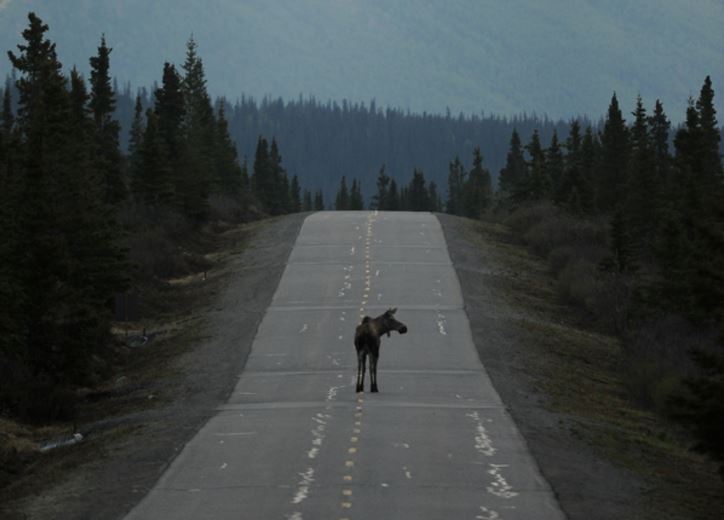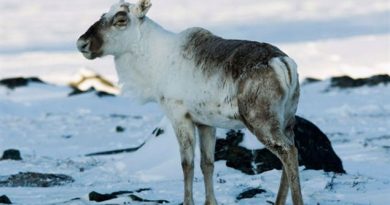Someone is stealing roadkill moose from the side of Alaska highways

Don Dyer drove to Talkeetna to salvage a dead moose in the early hours of Sunday morning, but when he arrived at the scene, he found something awry.
The animal had been killed on the Talkeetna Spur Road, about 100 miles north of Anchorage. Dyer, the executive director of the Alaska Moose Federation, was there to pick it up and donate it.
But someone else had gotten to it first.
“The shoulder was missing,” Dyer said.
Specifically, the left shoulder. “Absolutely cut out with a knife,” said Dyer, with the rest of the animal left behind.
Reoccurring theft
The Alaska Moose Federation collects moose that have been hit by cars and salvages them in hopes that the meat won’t go to waste. The organization contracts with the state, and works with Alaska State Troopers, to deliver the salvaged moose to qualifying Alaskans. This isn’t the first time someone has stolen from the program, Dyer said.
Twice in the last 30 days, the organization has arrived to find a moose missing from where it should be on the side of the highway. Alaska State Troopers responding to the scene mark the roadkill site for the salvagers; in both instances, the drivers found the troopers’ flares, but no animal, Dyer said.
Both moose were taken between Mile 90 and 120 on the Parks Highway, according to Dyer.
Last winter, two other moose were stolen. Before Sunday, Dyer said he’d seen a section of a moose plucked from a carcass only once.
‘Property of the state’
Stealing roadkill moose is illegal, Alaska State Troopers spokeswoman Megan Peters wrote in an email. Once an animal is killed by a vehicle, it becomes property of the state.
“Someone could be charged with illegal possession and/or theft. If a person kills the animal with their vehicle and also takes it instead of turning it over to the state, they could be charged with illegal methods/means (of taking game) as well as illegal possession,” Peters wrote.
The Alaska Moose Federation was formed in 2002. Over the years the organization has faced scrutiny due to controversial programs funded by millions of state dollars.
In 2015, Dyer took over as executive director. The organization has since narrowed its vision to roadkill pickups, a program praised for its success.
Roadkill for Alaskans
Since the end of September 2015, the program has delivered around 450 moose to Alaskans who have applied to receive the salvaged animals, Dyer said.
The Alaska Moose Federation responds to a moose kill if it is within their contract jurisdiction, said Capt. Rex Leath, commander of the Alaska Wildlife Troopers’ Northern Detachment. Anyone interested in signing up for the roadkill list can do so through the wildlife troopers office.
The Moose Federation’s contract for the program was renewed this June. It pays $200 for each moose pickup plus maintenance. Since it’s a highway safety contract, federal dollars pay for the program.
Six drivers pick up moose statewide, Dyer said, and deliver the animals whole to the people on the list.
“I’ve always been impressed by the quality of people that we work with,” he said of the Alaskans who receive the donated moose.
Related stories from around the North:
Canada: Blog: How two towns in the Canadian Arctic get their food, Blog by Mia Bennett
Norway: The food crisis in the Far North, Barrents Observer
Sweden: Demand ups Sweden’s reindeer meat prices, Radio Sweden
United States: Food insecurity in Alaska, Alaska Dispatch News




Must be a redneck!